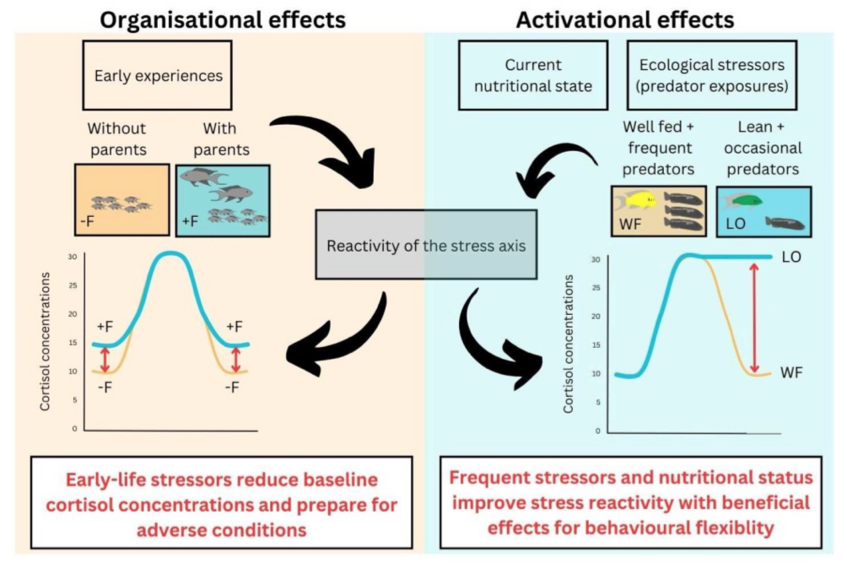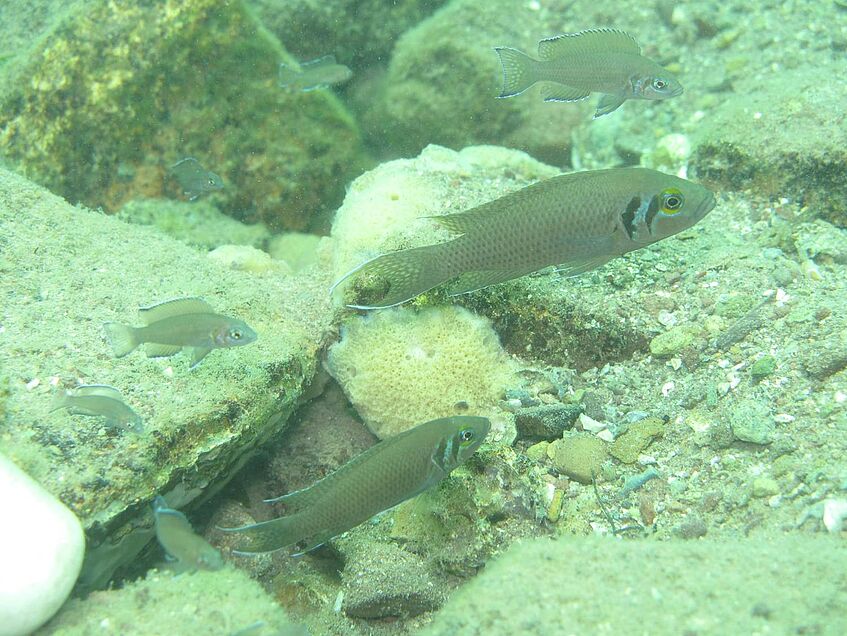Stress, Nutritional State & Behavioural Flexibility
Projects
WWTF Project CS18-042: Coping with change: The influence of early experience, nutrition, and stress on behavioral flexibility
NXT22-006: Implementing novel feeding strategies to improve animal welfare and the release success of commercial fish farms
Organisms facing environmental challenges rely on stress hormones like cortisol to mobilize energy and enhance attention and learning. Once the challenge is over, cortisol levels return to normal. This quick rise and fall of cortisol is known as stress response. However, chronic high cortisol levels can impair learning and harm overall health. Models predict that early life stressors as well as an individual’s nutritional status influence stress responses and learning, but their relationships have not been studied.
To explore this, we used the social fish "Princess of Lake Tanganyika". To investigate the effect of early experience on stress responses, fish were raised under different early life stress conditions, and their cortisol responses were measured later in life. Fish deprived of older group members during development had lower baseline cortisol and altered stress receptor expression in the brain, indicating that early-life stress prepares individuals for risky environments.

Complex interaction
In a second experiment, we manipulated the nutritional state and stress levels of adult fish. Well-fed individuals exposed to frequent stressors (e.g., predators) exhibited better stress responses and improved learning of new tasks compared to their leaner counterparts. This suggests that repeated stress responses are energetically costly, and well-nourished individuals cope better. Blocking stress receptors further confirmed that an appropriate stress response is necessary for flexible coping with environmental challenges.
These findings have broad implications for both basic research and animal husbandry. Mild, manageable stressors help prepare organisms for future challenges, especially when they are well-nourished but not obese. Defining optimal nutrition thresholds will be important for improving animal welfare in captivity.
Thus in the WTTF funded Project (NXT22-006) we experimentally investigate the consequences of different feeding strategies on individual stress responses in Atlantic salmon. Our aim is to improve awareness in fish farms across Sweden and Austria, that overfeeding leads to economic losses and issues in conservation programs.
Researchers: Sabine Tebbich (Principal Investigator), Leonida Fusani (Co-Principal Investigator), Barbara Taborsky (Co-Principal Investigator), Stefan Fischer, Steve Smith & Virginie Canoine


